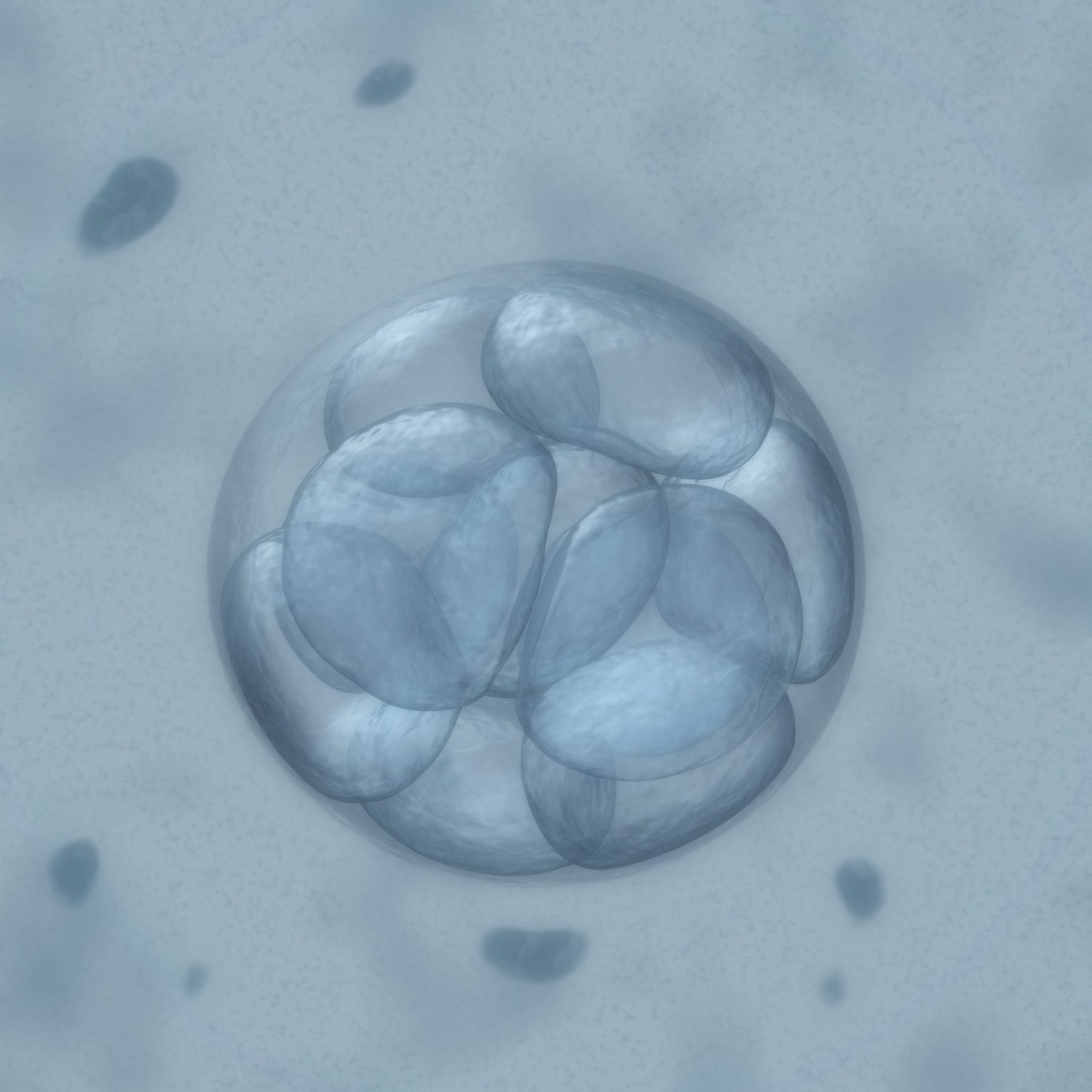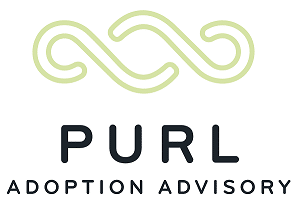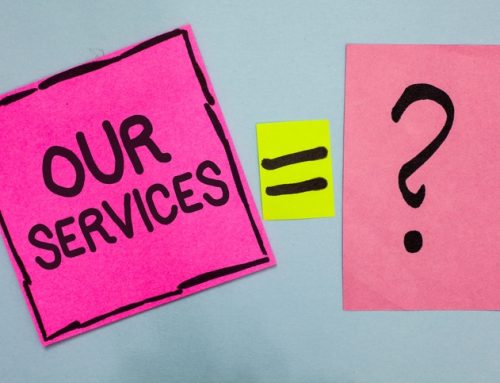
As we have discussed at length in the last few years, the domestic infant adoption world is crowded and families are taking longer to match and adopt. There really is no need for more prospective adoptive parents, and we have heard statistics there are likely 50-75 waiting prospective adoptive families for every baby being placed for adoption at birth. Because of that reality, many couples and individuals have turned to embryo donation/embryo adoption, another assisted reproduction method to grow a family, but potentially at a lower cost and with different considerations than domestic infant adoption. While we are not assisted reproduction attorneys, we wanted to give you some basic information on embryo donation/adoption to consider before beginning a domestic infant adoption journey or an embryo donation/adoption journey. We also encourage you to reach out to an experienced assisted reproduction attorney in your state to better understand your state’s laws on embryo donation/embryo adoption.
What is Embryo Adoption/Donation? Embryo Adoption/Donation is the legal transfer of embryos that have been frozen and donated by families who have completed their own invitro fertilization (“IVF”) procedures. When undergoing IVF, most couples will freeze any extra embryos for future use. These embryos are often not needed once a family is complete, and the couple may choose to place extra embryos for “adoption” or allow the donation of the frozen embryos to other people struggling to conceive. Once the embryo is implanted into the adopted mother’s uterus (like in the second part of a traditional IVF process), in what is called a frozen embryo transfer (“FET”). A successful FET from a donated or adopted embryo allows the adoptive mother to experience pregnancy and deliver her baby.
What’s the difference between Embryo Adoption and Embryo Donation? Embryo adoption views the embryo as a child, typically requiring the recipients to go through a comprehensive legal process to adopt the embryo. This means similar protections and guidelines set in place for traditional adoption – home studies, legal contracts, post-adoption support and education – are applied to the embryo recipient/adoptive family. There are embryo adoption agencies that facilitate that process, as well as options for self-matching with donor families/ Embryo donation views the embryo more as a “gift” that is being donated and the recipients are accepting ownership. The donor couple may not choose the family receiving the embryos and the donated embryos may be distributed among multiple recipients. Embryo donation is often offered by many large fertility clinics, and may not require a home study or other background check typically required in domestic infant adoption or embryo adoption.
What law applies to the adoption of embryos? Is it the same as domestic infant adoption? In the United States, an embryo is not considered a person, but instead is considered property. As a result, in general, state adoption laws do not apply to an embryo adoption, but each state’s laws will differ slightly on this matter. Absent any specific law on the topic, the process of donating embryos to a recipient family is typically, from a legal perspective, managed by property law. This allows one family to donate or place their remaining embryos to another family while protecting all parties involved with a legal contract.
Embryo donation and adoption process involves an adoption agreement and relinquishment forms, which are legal contracts between the donor and recipient couples. The contracts formalize the donor’s relinquishment of their parental rights to the embryo prior to any FET by the adopting family. Once the contract is finalized, the embryos belong to the adopting parents. Embryo adoption agencies and clinics may differ in how they define embryos in their legal agreements. Some may refer to embryo donation as a transfer of property while others may incorporate traditional adoption language into their legal documents.
What does it mean when a child is born after embryo adoption/donation? At the time of birth, the adoptive couple is usually recognized as the legal parents to any children born and adoptive parents are listed as the parents on the child’s birth certificate, unless the child is carried by a surrogate (where there is different law governing surrogacy). However, some state’s laws may not explicitly cover embryo adoption or embryo donation, and many adoption and assisted reproduction attorneys recommend formally adopting the child that results from embryo adoption/donation after the birth of that child. An experienced adoption or assisted reproduction attorney can help you assess the need for that in your state.
Is Embryo Donation or Adoption right for you? While domestic adoption world has only gotten more crowded, the same cannot be said for embryo donation/adoption. In fact, there are hundreds of thousands of frozen embryos nationwide, with many available immediately for closed to open donation/adoption for families able to carry a pregnancy to term. So the question is, who can potentially find success with embryo donation or embryo adoption? Here are some factors to consider when deciding if embryo donation/adoption is right for you:
-
Is there any known reason you cannot carry a child to term? This is necessary for embryo donation/adoption, unless you are prepared to use a surrogate/gestational carrier.
-
Do you have issues with egg/sperm quality? If that’s where your fertility concerns are centered, embryo donation/adoption could be a great option for you.
-
Do you want to experience childbirth, even if it is with a donor embryo?
-
Are you particularly concerned about drug/alcohol exposure during the child’s pregnancy?
-
Were you adopting instead of conceiving in order to avoid passing along an inheritable condition to your child? If so, embryo donation/adoption allows you to carry a child, but not a child with your genetic makeup.
- Are you uncomfortable with the idea of using a donor egg or sperm and having your child be the genetic product of only you or only your spouse? Do you feel more comfortable having a child that is of a different genetic makeup of both of you?
-
Are you concerned about having a child of a particular descent? The vast majority of the frozen embryos that are available for donation/adoption are Caucasian, but there are options for Asian, Hispanic, Indian and only limited options for African-American embryos.
-
Is domestic infant adoption too expensive for you? The average cost of domestic infant adoption is around $41,000. Embryo donation/adoptions can be much less than that, particularly if a family is successful on the first frozen embryo transfer, with average costs being less than $20,000.
-
Are you really wanting a more closed or semi-closed adoption or simply an exchange of information about the donor? Domestic adoptions are continuing to be more open given that the research shows that is better for the adoptee. While we advocate for open, truthful communication with the child about how they were conceived in both domestic adoption and embryo donation/adoption, there were more possibilities for closed or semi-closed/semi-open relationships in embryo donation/adoption.
- Are you unable to pass a traditional home study process for some reason, but still want the option of growing your family through assisted reproduction?
-
Are you concerned about the trauma that undoubtedly exists in adoption? Every prospective adoptive parent should be aware that their child through adoption can and likely will face some trauma from their adoption. Many people believe there is less trauma that exists through embryo donation/adoption as long as communication is open throughout the child’s life about the way the family was formed.
We now have an Embryo Adoption Coaching package to give guidance to families considering embryo donation/adoption, which you can see on our current pricing sheet. Please contact us to learn more about this option for growing your family. Through this package, we provide coaching and education on embryo donation/adoption and also offer resources and information about experienced professionals who can support you on this journey.

As we have discussed at length in the last few years, the domestic infant adoption world is crowded and families are taking longer to match and adopt. There really is no need for more prospective adoptive parents, and we have heard statistics there are likely 50-75 waiting prospective adoptive families for every baby being placed for adoption at birth. Because of that reality, many couples and individuals have turned to embryo donation/embryo adoption, another assisted reproduction method to grow a family, but potentially at a lower cost and with different considerations than domestic infant adoption. While we are not assisted reproduction attorneys, we wanted to give you some basic information on embryo donation/adoption to consider before beginning a domestic infant adoption journey or an embryo donation/adoption journey. We also encourage you to reach out to an experienced assisted reproduction attorney in your state to better understand your state’s laws on embryo donation/embryo adoption.
What is Embryo Adoption/Donation? Embryo Adoption/Donation is the legal transfer of embryos that have been frozen and donated by families who have completed their own invitro fertilization (“IVF”) procedures. When undergoing IVF, most couples will freeze any extra embryos for future use. These embryos are often not needed once a family is complete, and the couple may choose to place extra embryos for “adoption” or allow the donation of the frozen embryos to other people struggling to conceive. Once the embryo is implanted into the adopted mother’s uterus (like in the second part of a traditional IVF process), in what is called a frozen embryo transfer (“FET”). A successful FET from a donated or adopted embryo allows the adoptive mother to experience pregnancy and deliver her baby.
What’s the difference between Embryo Adoption and Embryo Donation? Embryo adoption views the embryo as a child, typically requiring the recipients to go through a comprehensive legal process to adopt the embryo. This means similar protections and guidelines set in place for traditional adoption – home studies, legal contracts, post-adoption support and education – are applied to the embryo recipient/adoptive family. There are embryo adoption agencies that facilitate that process, as well as options for self-matching with donor families/ Embryo donation views the embryo more as a “gift” that is being donated and the recipients are accepting ownership. The donor couple may not choose the family receiving the embryos and the donated embryos may be distributed among multiple recipients. Embryo donation is often offered by many large fertility clinics, and may not require a home study or other background check typically required in domestic infant adoption or embryo adoption.
What law applies to the adoption of embryos? Is it the same as domestic infant adoption? In the United States, an embryo is not considered a person, but instead is considered property. As a result, in general, state adoption laws do not apply to an embryo adoption, but each state’s laws will differ slightly on this matter. Absent any specific law on the topic, the process of donating embryos to a recipient family is typically, from a legal perspective, managed by property law. This allows one family to donate or place their remaining embryos to another family while protecting all parties involved with a legal contract.
Embryo donation and adoption process involves an adoption agreement and relinquishment forms, which are legal contracts between the donor and recipient couples. The contracts formalize the donor’s relinquishment of their parental rights to the embryo prior to any FET by the adopting family. Once the contract is finalized, the embryos belong to the adopting parents. Embryo adoption agencies and clinics may differ in how they define embryos in their legal agreements. Some may refer to embryo donation as a transfer of property while others may incorporate traditional adoption language into their legal documents.
What does it mean when a child is born after embryo adoption/donation? At the time of birth, the adoptive couple is usually recognized as the legal parents to any children born and adoptive parents are listed as the parents on the child’s birth certificate, unless the child is carried by a surrogate (where there is different law governing surrogacy). However, some state’s laws may not explicitly cover embryo adoption or embryo donation, and many adoption and assisted reproduction attorneys recommend formally adopting the child that results from embryo adoption/donation after the birth of that child. An experienced adoption or assisted reproduction attorney can help you assess the need for that in your state.
Is Embryo Donation or Adoption right for you? While domestic adoption world has only gotten more crowded, the same cannot be said for embryo donation/adoption. In fact, there are hundreds of thousands of frozen embryos nationwide, with many available immediately for closed to open donation/adoption for families able to carry a pregnancy to term. So the question is, who can potentially find success with embryo donation or embryo adoption? Here are some factors to consider when deciding if embryo donation/adoption is right for you:
-
Is there any known reason you cannot carry a child to term? This is necessary for embryo donation/adoption, unless you are prepared to use a surrogate/gestational carrier.
-
Do you have issues with egg/sperm quality? If that’s where your fertility concerns are centered, embryo donation/adoption could be a great option for you.
-
Do you want to experience childbirth, even if it is with a donor embryo?
-
Are you particularly concerned about drug/alcohol exposure during the child’s pregnancy?
-
Were you adopting instead of conceiving in order to avoid passing along an inheritable condition to your child? If so, embryo donation/adoption allows you to carry a child, but not a child with your genetic makeup.
- Are you uncomfortable with the idea of using a donor egg or sperm and having your child be the genetic product of only you or only your spouse? Do you feel more comfortable having a child that is of a different genetic makeup of both of you?
-
Are you concerned about having a child of a particular descent? The vast majority of the frozen embryos that are available for donation/adoption are Caucasian, but there are options for Asian, Hispanic, Indian and only limited options for African-American embryos.
-
Is domestic infant adoption too expensive for you? The average cost of domestic infant adoption is around $41,000. Embryo donation/adoptions can be much less than that, particularly if a family is successful on the first frozen embryo transfer, with average costs being less than $20,000.
-
Are you really wanting a more closed or semi-closed adoption or simply an exchange of information about the donor? Domestic adoptions are continuing to be more open given that the research shows that is better for the adoptee. While we advocate for open, truthful communication with the child about how they were conceived in both domestic adoption and embryo donation/adoption, there were more possibilities for closed or semi-closed/semi-open relationships in embryo donation/adoption.
- Are you unable to pass a traditional home study process for some reason, but still want the option of growing your family through assisted reproduction?
-
Are you concerned about the trauma that undoubtedly exists in adoption? Every prospective adoptive parent should be aware that their child through adoption can and likely will face some trauma from their adoption. Many people believe there is less trauma that exists through embryo donation/adoption as long as communication is open throughout the child’s life about the way the family was formed.
We now have an Embryo Adoption Coaching package to give guidance to families considering embryo donation/adoption, which you can see on our current pricing sheet. Please contact us to learn more about this option for growing your family. Through this package, we provide coaching and education on embryo donation/adoption and also offer resources and information about experienced professionals who can support you on this journey.



